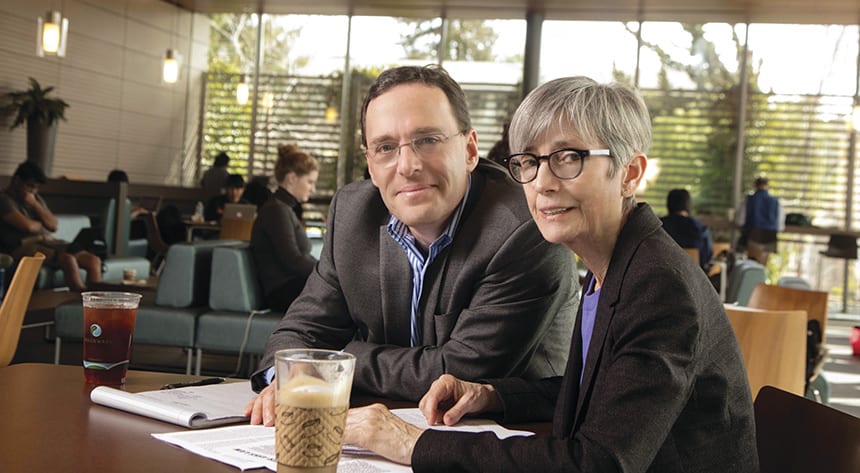
Thanks to a $3.5 million gift from renowned litigator Elizabeth Cabraser ’78, Berkeley Law launched a new center in February that aims to make the school a global leader in the study, research, and practice of consumer law.
The Berkeley Center for Consumer Law and Economic Justice—the first of its kind among top-tier law schools—will deliver research and analysis to fuel meaningful policy change. It will produce white papers, file amicus briefs in consumer cases nationwide, advise legislatures and regulatory agencies on behalf of low-income consumers, and increase student opportunities for hands-on experience in consumer policy.
“Consumer law is at work all around us, every day. But it’s almost invisible in law schools,” says
Cabraser, a founding partner at Lieff Cabraser Heimann & Bernstein. “This center will actively help protect people in the modern marketplace.”
The center will co-host the United States’ only conference of consumer law clinics, convene the first conference of consumer law scholars, and bring together practitioners, advocates, academics, and students for speaker series, workshops, and collaborative projects. Students can gain litigation experience through partnerships with public agencies, and Berkeley Law will offer scholarships to prospective and active students who demonstrate interest in consumer law.
Interim Executive Director Ted Mermin ’96, co-founder of the Public Good Law Center, and Cabraser have taught consumer-focused courses at Berkeley Law and helped build its consumer law program over the past decade.
The school offers five consumer law courses, with more planned. Meanwhile, alumni work in the field at nonprofits, legal service providers, private firms, and government agencies.
“We’ve seen first-hand a surging interest among students,” Mermin says. “The curricular offerings have grown, the clinical offerings have grown—and now this endeavor will take the program to another level.”
Mermin helped create the East Bay Community Law Center’s Consumer Justice Clinic, where students helped pass the California Fair Debt Buying Practices Act (2013) and follow-up state bills on debt collection and wage garnishment. Students also established the Consumer Advocacy and Protection Society and the Consumer Rights Workshop, and the school now has a mentoring program with graduates in the field.
“The creative energy and practical efforts of this center will help improve the economic lives of all Americans,” says Richard Cordray, former director of the Consumer Financial Protection Bureau. “It is needed and welcomed by all who champion the cause of consumers.”
The center will help define the sometimes hazy parameters of consumer law—which can include everything from debt collection abuse and inflated drug prices to false advertising and subprime auto lending—and identify issues demanding attention.
“It’s time for a consumer law renaissance,” Cabraser says. “Every one of us lives a daily life as a consumer, and marketplace fairness is a universal right; for those struggling economically, it is a basic necessity.”
